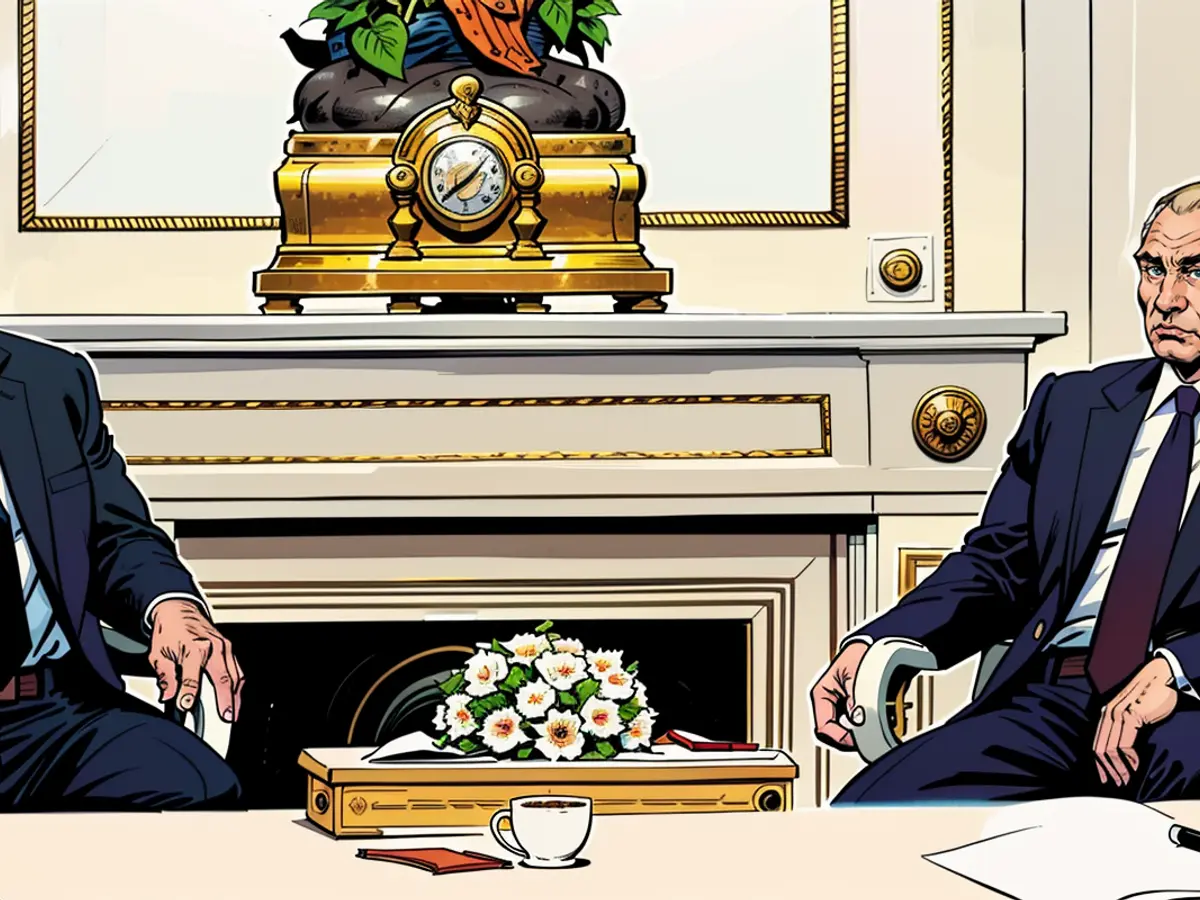Protests because of Ukraine politics - The EU ministers anticipate a debate on the Orban journey
The foreign ministers and foreign ministers of the 27 EU-member states are coming together in Brussels for discussions on the situation in the Middle East and Ukraine. At the last regular meeting before the summer break, a video conference with Ukrainian Foreign Minister Dmytro Kuleba is also planned.
The meeting is overshadowed by internal EU disagreements over how to react to the unsanctioned travels of Hungarian Prime Minister Viktor Orban to Russia's President Vladimir Putin, China's State and Party Chief Xi Jinping, and the former US President Donald Trump.
Some member states would like to cancel or postpone an informal foreign ministers meeting planned for the end of August in Budapest due to Orban's solo actions. Countries like Germany, however, have been against this - partly because they would rather discuss on-site why they consider Orban's talks with Putin, Xi, and Trump to be incorrect.
Why the Moscow trip is causing trouble
The trip is particularly problematic because Hungary currently holds the rotating EU Council Presidency, and there was a fear that abroad, Orban would be perceived as speaking on behalf of the European Union. From the EU Commission's perspective, Orban also harmed the EU's efforts in the Ukraine policy by appearing to make conciliatory gestures. Criticism was focused on the fact that the trip could be seen as a sign of approval from Putin.
EU Commission President Ursula von der Leyen responded to Orban's solo actions by announcing that top representatives of her institution would no longer attend minister meetings organized by the Hungarian EU Council Presidency.
Orban himself justifies his travels by arguing that peaceful negotiations need to take place as soon as possible. The Hungarian has long held the view that the political course of the EU and NATO could lead to an expansion of the war beyond Ukraine. However, from Ukraine's perspective, negotiations are meaningless as long as Russia shows no willingness to withdraw from the occupied territories.
Information on the EU meeting.
- Despite the upcoming EU meeting in Brussels to discuss the Middle East and Ukraine, the gathering is marred by internal disagreements over Hungarian Prime Minister Viktor Orban's unsanctioned trips to Vladimir Putin, Xi Jinping, and Donald Trump.
- Some EU member states advocate for cancelling or postponing an informal foreign ministers meeting due to Orban's solo actions, while Germany prefers discussing the issue on-site to understand their concerns.
- The EU Commission believes that Orban's trip to Russia harms the EU's efforts in Ukraine policy by giving the impression of conciliatory gestures towards Putin.
- In response to Orban's solo actions, EU Commission President Ursula von der Leyen announced that top representatives of her institution would no longer attend minister meetings organized by the Hungarian EU Council Presidency.
- Orban justifies his travels by arguing for the necessity of peaceful negotiations to prevent the war in Ukraine from expanding, but from Ukraine's perspective, negotiations are meaningless as long as Russia does not withdraw from occupied territories.
- The foreign ministers and foreign ministers of the 27 EU-member states, including Hungary, are scheduled to convene in Brussels for discussions on the complex international relations, particularly the Ukraine situation, with internal disagreements still lingering.








